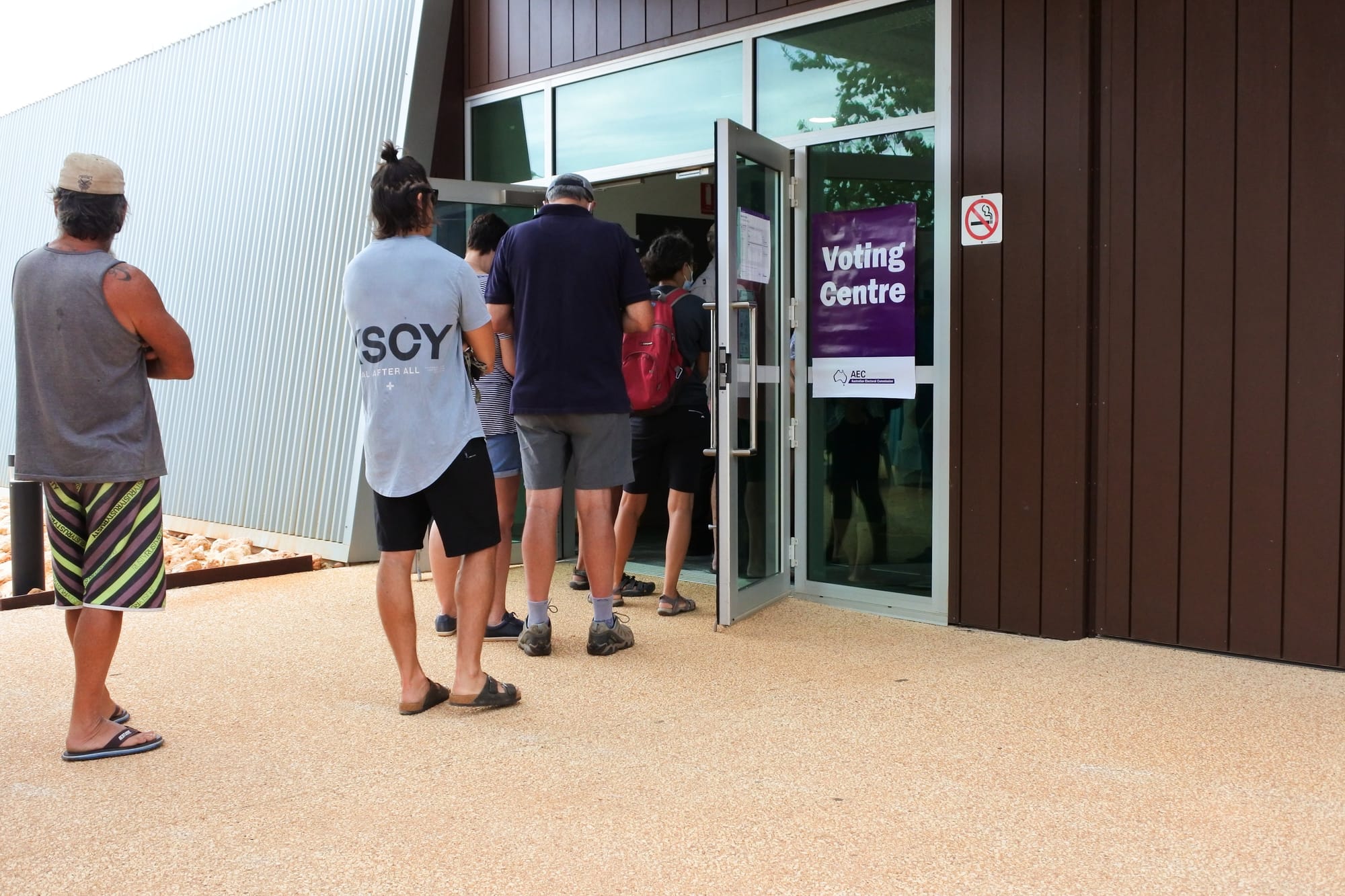
More than 18 million Australians are enrolled to vote at the federal election on 3 May.
A fair proportion of them – perhaps as many as half – will take advantage of early voting, which starts Tuesday 22 April.
Hundreds of locations around Australia will morph into pre-polling centres for the next couple of weeks as we enter the final phase of the campaign.
Australians have enthusiastically embraced the opportunity to vote early in recent elections. But there are some risks for voters if they jump the gun too quickly. And it’s upending the way parties and other candidates organise their campaigns.
Go early
The popularity of voting early has been on an upward trajectory in recent decades.
Research shows that in 2004, for instance, more than 80% of Australians waited until polling day to cast their ballots.
But at the 2022 federal election, almost half of all Australians on the electoral roll voted early.
There were variations across jurisdictions. Queensland had the highest rate of pre-poll voting at 56.6%, while Tasmanians had the lowest at just 36.8%.
The Australian Electoral Commission (AEC) was actively encouraging people to vote early due to COVID concerns. Nonetheless, the trend is unmistakable. Voters want to skip the queues on election day.
Logistical problems
Early voting has been the subject of much scrutiny, especially the length of time it is available to voters. The major political parties have expressed concern about the impact it has on campaign planning and logistics.
In its submission to a parliamentary inquiry into the conduct of the 2019 election, the Liberal Party highlighted how pre-poll voting placed “significant pressure on political parties” and their ability to provide booth workers for the entire early voting period, which was almost three weeks long.
Similarly, Labor acknowledged “significant practical implications for political parties and campaign managers”. The Greens also indicated they were in favour of limiting the pre-poll period.
Following the rise in early voting at the 2016 and 2019 elections, the Joint Standing Committee on Electoral Matters recommended pre-polling be restricted to a fortnight before election day.
The committee noted:
A two week period best balances the opportunity to participate in an election as a voter, with the logistic demands placed on those who participate as contestants.
The electoral laws were subsequently changed by the Morrison government in 2021.
But given Easter Monday and Anzac Day both fall within the fortnight preceding May 3, the early polling window for this election will be further reduced.
Campaign disruption
The rising popularity of early voting plays havoc with the campaign plans of all candidates.
In the past, when the overwhelming majority of voters waited for election day, it made sense for the major parties in particular to continually drip feed promises and announcements until the last day of voting.
Parties now have less time to pitch for support during the campaign. The critical window of opportunity to appeal to voters is the time between the election being called and when Australians flock to the polls at the start of early voting.
It is highly likely we have already seen all the major policies in this election, including the voter-friendly cost-of-living measures.
But the parties are in a bind, because they must continue to appeal to the significant number of voters who will be considering who to vote for right up until election day itself.
Skip the queue
While many people will be tempted to vote early, the Australian Electoral Commission’s website reminds us there are some conditions for pre-poll voting.
You can only vote early, either in person or by post, if on polling day you are:
- travelling or unable to leave your workplace to vote
- sick or due to give birth, or caring for someone who is
- a person with a disability, or caring for someone who is
- in prison serving a sentence of less than three years
- prevented by religious beliefs from attending on election day
- a silent elector, or reasonably fearful for your safety or wellbeing.
Aware of the temptation to pre-poll, the AEC says people who wait until election day won’t have to battle long queues. In fact, 75% of them will be in and out of the polling place in under 15 minutes.
Voter beware
The numbers don’t lie. More and more voters are keen to participate in the democratic process before election day.
However, voting early could be a double-edged sword. It may be convenient, but there is always the risk candidates or parties could say or do something that antagonises a voter after they have cast their ballot.
As there is no way to withdraw an original vote or cast a new one if they change their minds, early voters are taking a risk.
Moreover, by voting early, people may be missing out on the sausage sizzle, the craft stands, and the bake sales that many communities hold on voting day. These election day traditions raise funds and add a special community feeling to the ultimate exercise of democracy – choosing a government.

This article originally appeared on The Conversation.





